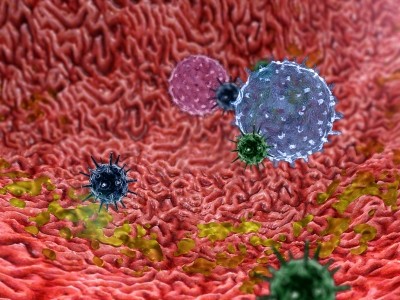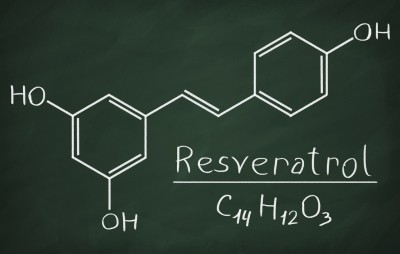Resveratrol may boost mitochondrial function for diabetics: Pre-clinical data

Data from cell and animal studies indicates that the early stages of diabetes are associated with detrimental changes in coronary microvascular function, and this is linked to dysfunction of the mitochondria – the batteries of the cells. However, resveratrol was found to protect mitochondrial function, and may support cardiovascular health for diabetics.
“We demonstrate that hyperglycaemia leads to mitochondrial dysfunction in microvascular endothelial cells, and that mitochondrial inhibition induces endothelial dysfunction,” wrote scientists from Baker IDI Heart and Diabetes Institute in Melbourne (Australia), Monash University (Australia), and the University of Kentucky College of Medicine (USA) in Diabetes and Vascular Disease Research.
“Additionally, we show that resveratrol acts as a protective agent; resveratrol-mediated mitochondrial protection may be used to prevent long-term diabetic cardiovascular complications.”
Lifespan effects
Resveratrol is a powerful polyphenol and anti-fungal chemical that is often touted as the bioactive compound in grapes and red wine. Interest in the compound exploded in 2003 when research from David Sinclair and his team from Harvard reported that resveratrol was able to increase the lifespan of yeast cells. According to Sinclair’s findings, resveratrol could activate a gene called sirtuin1 (Sirt1 – the yeast equivalent was Sir2), which is also activated during calorie restriction in various species, including monkeys.
Other studies with only resveratrol have reported other benefits, including supporting heart health, blood sugar management, and energy endurance enhancement.
There are also reports that resveratrol may influence mitochondrial function, and thereby affect aging. A 2014 paper published in the Journal of Food Science reported that resveratrol may counter the detrimental effects of a high fat diet including restoring mitochondrial function. Data from lab mice indicated that resveratrol appeared to increase the production of regulatory T cells (Tregs), which play a key role in modulating the immune system.
Mitochondria and aging
It’s already well known that the function of mitochondria declines with age, while aging is a known risk factor for a number of common age-related and neurodegenerative disorders. This led researchers to propose that mitochondrial dysfunction may lead to degenerative diseases.
A role for oxidative stress has been proposed to promote mitochondrial dysfunction, leading researchers to examine if antioxidants such as CoQ10, and vitamins C and E may play a role, as well as other bioactives like nicotinamide riboside, a form of vitamin B3.
The new paper reports that elevated blood glucose levels may also produce mitochondrial dysfunction, and that resveratrol may ameliorate the cardiovascular complications.
For the new study, the researchers used human endothelial cells to investigate the effects of elevated blood glucose levels on cell function and mitochondrial dysfunction. They then used diabetic rats to evaluate the potential benefits to cardiovascular health of resveratrol. Data from the experiments revealed that the early stages of diabetes were associated with coronary microvascular dysfunction.
“Resveratrol is a known SIRT1 activator which prevents or delays the onset of many diseases such as cancer, ischaemic heart disease and other disease models,” wrote the researchers. “Resveratrol-mediated SIRT1 activation is known to regulate PGC-1alpha deacetylation and thus enhance mitochondrial biogenesis and function. Alternatively, SIRT1 is also recently shown to influence mitochondrial biogenesis as well as OXPHOS via PGC-1alpha-independent pathway which involves mitochondrial transcription factor A (TFAM)-mediated signalling. These resveratrol-activated SIRT1 pathways may directly affect mitochondrial function in response to hyperglycaemia.
“Accordingly, we examined the influence of resveratrol on the hyperglycaemia-induced inhibition of mitochondrial function in endothelial cells. Consistent with the above paradigm, resveratrol was able to reverse the effects of hyperglycaemia on mitochondrial function in endothelial cells.”
“Further studies into the potential of resveratrol as a possible therapeutic agent to delay and/or prevent these cardiovascular impairments and to normalize mitochondrial function are warranted,” they concluded.
Source: Diabetes and Vascular Disease Research
Volume 12, Number 3, Pages 208-16. doi: 10.1177/1479164114565629
“Role of mitochondrial dysfunction in hyperglycaemia-induced coronary microvascular dysfunction: Protective role of resveratrol”
Authors: M.S. Joshi, D. Williams, D. Horlock, et al.
















